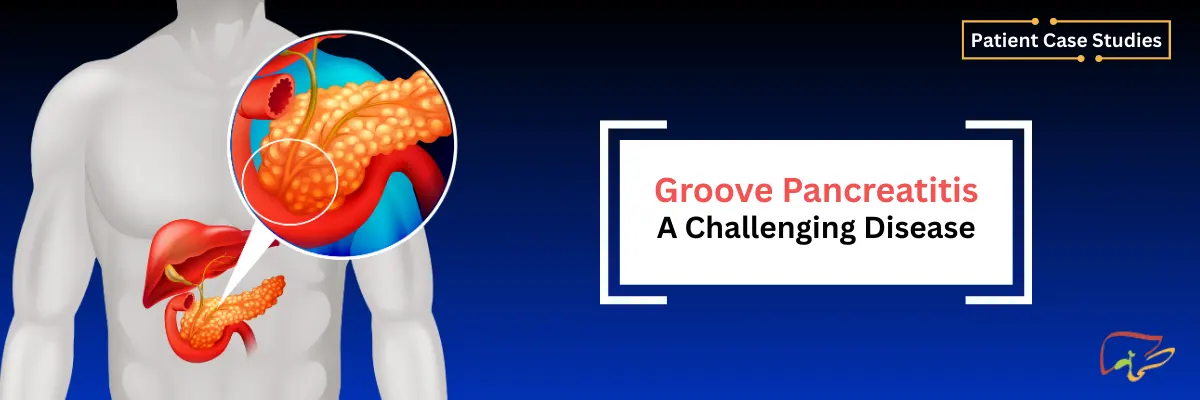
Groove pancreatitis - A Challenging Disease
Groove pancreatitis (GP) is an uncommon form of chronic pancreatitis, is predominantly seen in male patients consuming alcohol, is usually diagnosed in advanced stage and is best treated by surgery (Whipple’s pancreatoduodenectomy).
GP is also identified by other names like paraduodenal pancreatitis or cystic dystrophy. It is probably caused by multiple factors like inflammation of ectopic pancreatic tissue in the duodenal wall, narrowing of mouth of minor pancreatic duct, crystallisation of pancreatic secretions, thickening of duodenal lining etcetera. It affects the soft tissue in the pancreaticoduodenal groove, duodenal wall and pancreatic head; causes scarring / fibrosis following repeated inflammation, multiple cysts / pseudo cysts / cystic dystrophy of ectopic pancreatic tissue in the duodenal wall, causing constriction / narrowing / obstruction of structures in the nearby area like bile duct, duodenum, blood vessels and in extreme stages even the large intestine (colon). In extreme situations the mass formed by scarring with or without cysts mimics a cancer and is indistinguishable.
It starts as recurrent attacks of acute pancreatitis ( causing recurrent abdominal pain & vomiting with multiple hospital admissions) without specific findings on CT scan, MRI / MRCP, EUS etcetera. As disease progresses, nonspecific findings like duodenal wall thickening, small cysts & early fibrosis in the pancreaticoduodenal area start appearing on imaging studies. This causes vomiting, abdominal pain and weight loss. However typical findings of chronic pancreatitis like pancreatic calcification and pancreatic duct dilatation are not seen. Hence diagnosis of this condition in the early stages is very rare and difficult. As disease advances large cysts, duodenal and biliary stricture, phlegmon, / mass are seen on imaging and endoscopy. At this stage patients have severe abdominal pain, intolerable vomiting, jaundice and severe weight loss.
Patients usually go through extensive investigations including blood work up, multiple CT / MRI scans and EUS.
The treatment in early stages can be medical or endoscopic. However the results are poor. In advanced forms of GP or when there is any doubt of pancreatic cancer treatment is surgery wherein the involved portion of pancreas (head), common bile duct & duodenum are removed and gastrointestinal, biliary-enteric and pancreatointestinal continuity is reestsblished by anastomoses. This surgery also known as Whipple pancreatoduodenectomy (also performed for pancreatic cancer) is a major surgery and is often far more difficult when performed for GP than when performed for pancreatic cancer due to severe scarring, inflammation and vascular involvement. Any less invasive surgery like gastrojejunostomy usually does not resolve the problem and symptoms.
Since this is an uncommon form of chronic pancreatitis, large experience is lacking even with large volume pancreatic centers. We have operated 4 patients with GP so far. All of them underwent Whipples pancreatoduodenectomy. One patient had extreme form of disease involving multiple surrounding organs including colon and required a colectomy in addition to Whipple.


